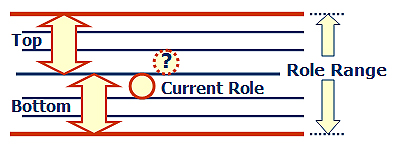“Then, how are we going to measure the size of the role?” I repeated. Joyce and I were discussing Phillip. Though he had been made manager, he was having difficulty with some of his new responsibilities.
“So, you are suggesting that we look at all the tasks on Phillip’s plate and assign a Time Span to them?” Joyce asked.
I nodded.
She began to brainstorm out loud, “If I look at his Key Result Areas, as Warehouse Manager, Phillip is responsible for:
- Personnel
- Receiving
- Picking
- Shipping
- Warehouse Layout and Work Flow
- Security
- Equipment
- Safety
“And which of those KRAs has the longest Time Span tasks?” I asked.
Joyce pulled out a sheet of paper to make some notes. “Receiving, picking and shipping are fairly short term things. The look-ahead is probably no more than a couple of weeks.
“But, both Personnel and Warehouse Layout and Work Flow, contain much longer Time Span tasks. We have a lot of seasonality to our product lines and we have to make decisions about inventory bin placement four or five months in advance. We really depend on a twelve month bin cycle that rotates stock both forward and backward depending on seasonality. Some tasks create a feedback loop to sales and purchasing about inventory turns, raw materials in stock, finished goods in stock. There is a lot to control, but it’s easy if you think out far enough into the future and plan.
“And that’s where Phillip messes up,” Joyce concluded. “He just doesn’t plan out far enough, so it’s always chaos.”
“So, if we were to measure Phillip’s capability in Personnel and Layout and Work Flow, he underperforms?” I confirmed.
It was Joyce’s turn to nod.
“So, let’s look at his other tasks, determine the level of work and see if we come up with a pattern of his effectiveness.”
____
Hiring Talent Summer Camp (online) starts June 20, 2016. Follow this link – Hiring Talent – for course description and logistics. Pre-register today. See you online. -Tom

